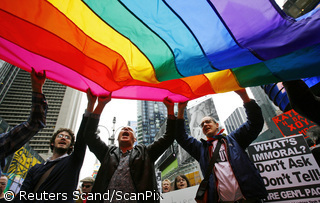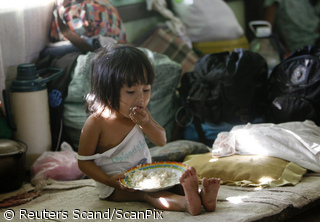Between 600-800 thousand illegal immigrants currently living in Moscow
Published:
29 June 2001 y., Friday
At a news conference on Thursday, Moscow’s vice mayor Valery Shantsev and the chairman of the capital city’s committee for migration affaires Sergei Smidovich announced that between 600-800 thousand illegal immigrants currently living in Moscow. The number of foreigners who live and wok in Moscow on a legitimate basis amounts to 62 thousand, whereas the black market of foreign labour, according to the estimations of the city authorities, is twice as large.
In the year 2000 inspections were conducted in 513 firms and enterprises in order to uncover illegal employment use of foreign labour. 9.5 million rubles of fines were collected from employers caught using foreign labour.This year 469 firms have already been inspected, 187 offenders were detected and over 5 million rubles collected.
The vice mayor of Moscow Valery Shantsev also said that “Moscow has gained the status as a transit point for illegal migrants bound for the USA, Canada and other countries”.
Given the transparency of the city’s boundaries and absence of the effective migration regulations, the city authorities are forced to handle the problem on their own, the vice mayor stated.
Shantsev said that to resolve that issue it would be necessary to pass new laws on the federal level. In particular, a law on the abode of foreigners in Russia is needed.
The vice mayor also said that in the near future will be signed an agreement on cooperation between the Ministry for Federal Affaires, the Ministry for National and Migration Policy and the Moscow City Migration Committee. The agreement will provide for the delimitation of jurisdiction between the federal and municipal agencies in the sphere of migration issues, the vice mayor said.
Šaltinis:
gazeta.ru
Copying, publishing, announcing any information from the News.lt portal without written permission of News.lt editorial office is prohibited.
The most popular articles
 Tiwonge Chimbalanga and Steven Monjeza are married, but in Malawi homosexuality is banned.
more »
Tiwonge Chimbalanga and Steven Monjeza are married, but in Malawi homosexuality is banned.
more »
 The World Bank today launched the fourth book in the critically acclaimed Moving Out of Poverty series, which provides bottom up perspectives on poverty and local realities by over 60,000 people living in 500 communities in 15 countries.
more »
The World Bank today launched the fourth book in the critically acclaimed Moving Out of Poverty series, which provides bottom up perspectives on poverty and local realities by over 60,000 people living in 500 communities in 15 countries.
more »
 Ten years ago, European leaders pledged to end poverty in the EU by 2010. As this deadline approaches, the goal is still some way off.
more »
Ten years ago, European leaders pledged to end poverty in the EU by 2010. As this deadline approaches, the goal is still some way off.
more »
 For many 2009 will be a historic year with the coming into force of the Lisbon Treaty, the outcome of the Copenhagen summit and the inauguration of the first black US president.
more »
For many 2009 will be a historic year with the coming into force of the Lisbon Treaty, the outcome of the Copenhagen summit and the inauguration of the first black US president.
more »
 Not answering the phone, celebrating Hogmanay and reading Dickens' Christmas Carol are just three seasonal traditions that MEPs shared with us.
more »
Not answering the phone, celebrating Hogmanay and reading Dickens' Christmas Carol are just three seasonal traditions that MEPs shared with us.
more »
 More and more people make their homes and own property in EU countries other than the one in which they hold citizenship.
more »
More and more people make their homes and own property in EU countries other than the one in which they hold citizenship.
more »
 European Parliament President Jerzy Buzek has made an televised Christmas and New Year address to European citizens, looking ahead to the challenges of the coming year.
more »
European Parliament President Jerzy Buzek has made an televised Christmas and New Year address to European citizens, looking ahead to the challenges of the coming year.
more »
 Lithuania takes the 1st position in the EU by the number of students in the country.
more »
Lithuania takes the 1st position in the EU by the number of students in the country.
more »
 Sergei Kovalev, former political prisoner turned activist for Russian human rights group Memorial gave an emotional and heartfelt address to the European Parliament on Wednesday 16 December.
more »
Sergei Kovalev, former political prisoner turned activist for Russian human rights group Memorial gave an emotional and heartfelt address to the European Parliament on Wednesday 16 December.
more »
 Strengthened passenger rights for travel by bus are an important item on the agenda when the Transport, Telecommunications and Energy Council (TTE) meets on 17–18 December.
more »
Strengthened passenger rights for travel by bus are an important item on the agenda when the Transport, Telecommunications and Energy Council (TTE) meets on 17–18 December.
more »